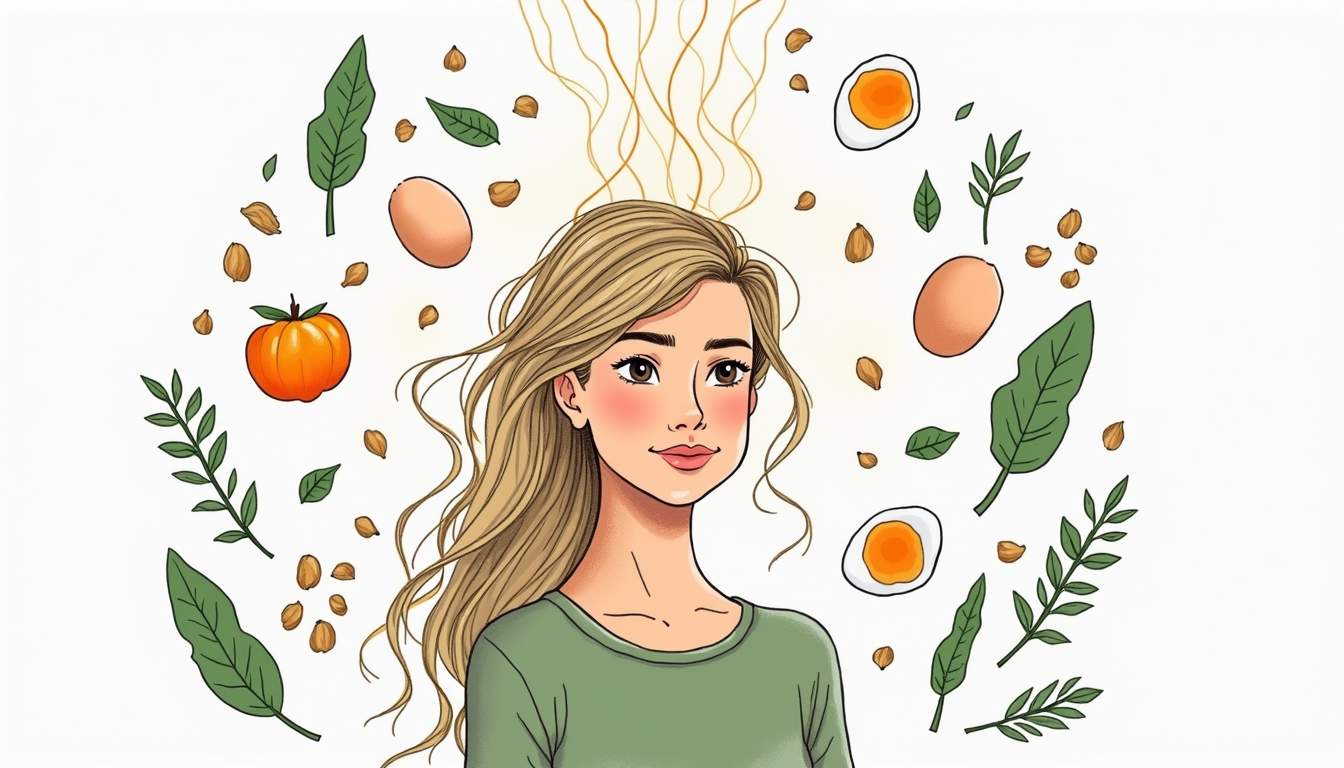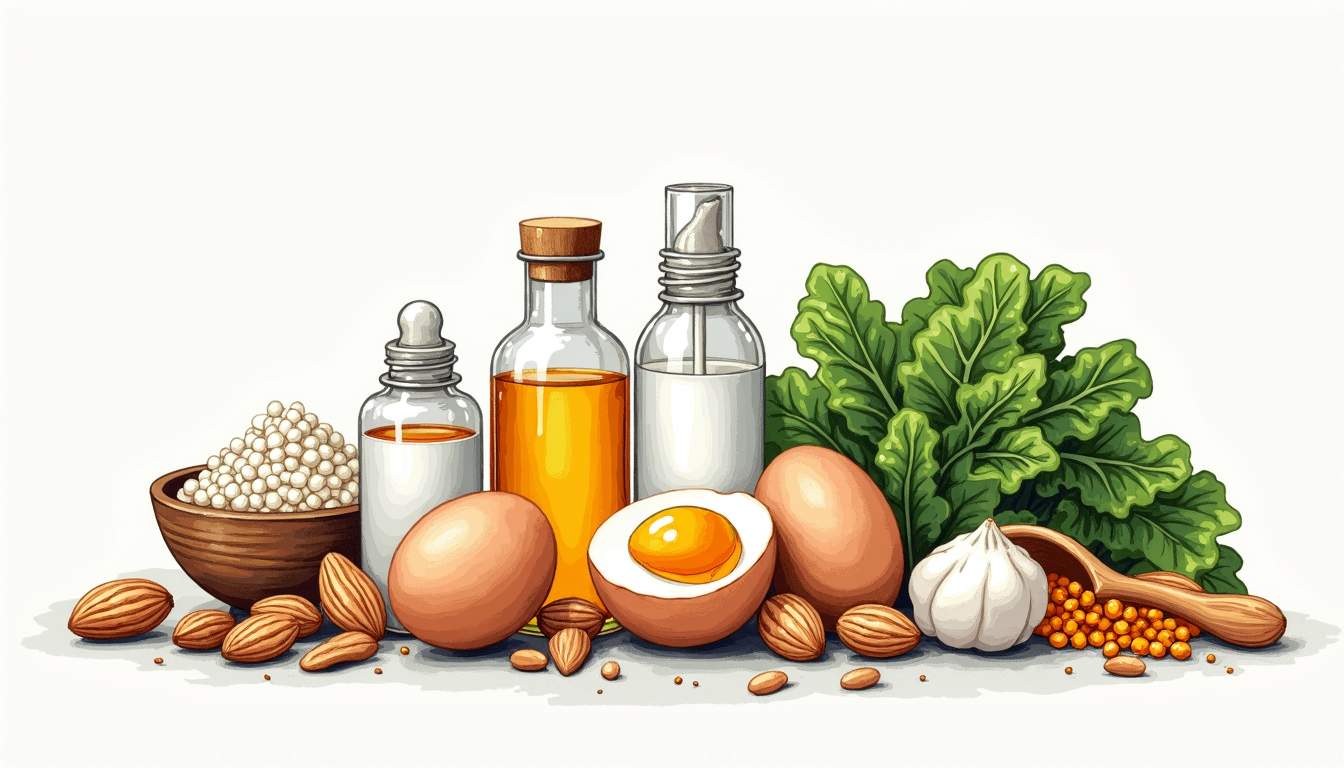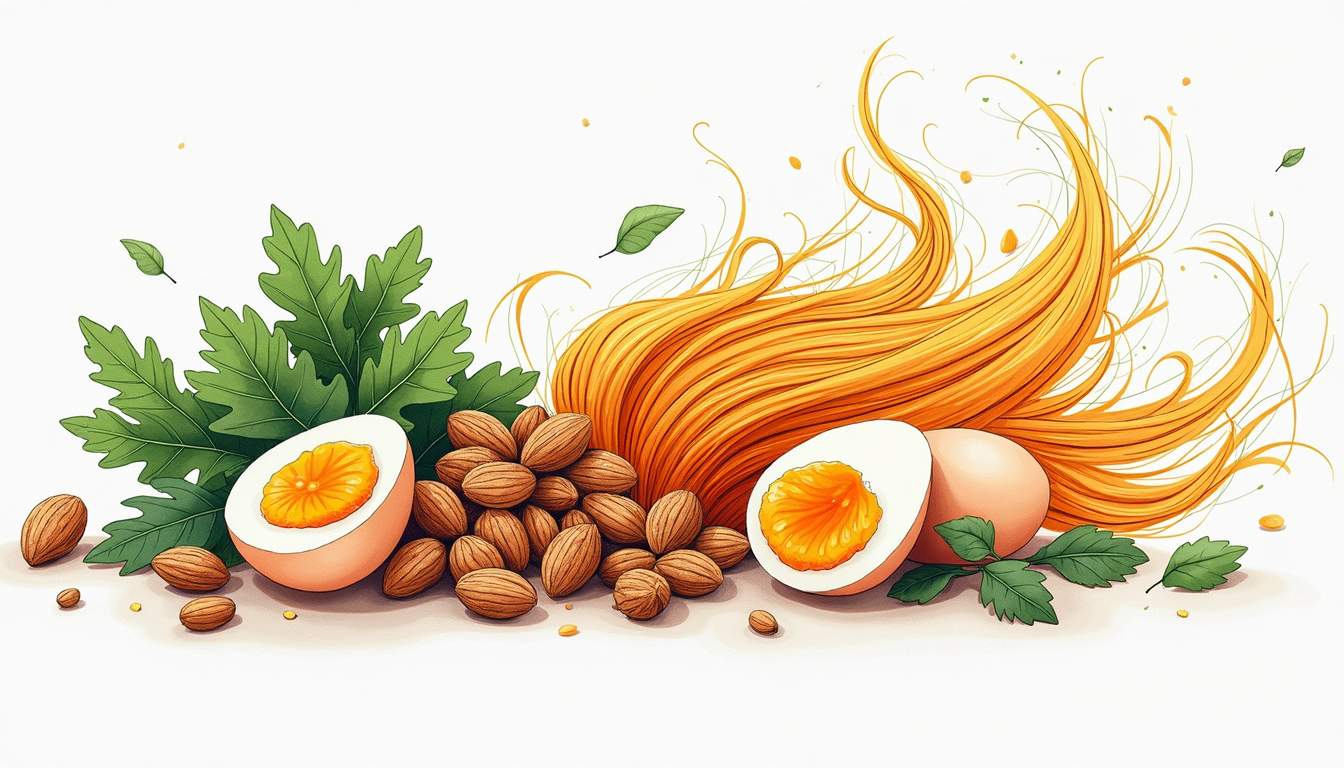Biotin vitamins have gained considerable attention for their potential benefits in addressing hair loss, particularly during the perimenopausal phase. This transitional period can be challenging for many women, as hormonal fluctuations can lead to various physical changes, including hair thinning. Understanding the connection between biotin and hair health can offer valuable insights for those navigating this phase of life.
Q: Does biotin help with perimenopause hair loss?
A: Biotin may help strengthen hair and reduce thinning during perimenopause by supporting keratin production and improving scalp health. While results vary, many women report improved hair thickness and reduced shedding when using biotin supplements.
Understanding Perimenopause Hair Loss
Perimenopause marks the transitional phase leading up to menopause, typically occurring in women in their 40s. During this time, hormonal levels, particularly estrogen and progesterone, begin to fluctuate significantly. These hormonal changes can lead to various symptoms, including hot flashes, mood swings, and changes in hair health.

Hormonal Changes and Hair Health
The decline in estrogen levels during perimenopause can directly impact hair follicles. Estrogen is known to play a crucial role in maintaining hair growth by prolonging the hair growth cycle. As estrogen levels drop, hair may enter the shedding phase more rapidly, leading to noticeable thinning. Additionally, the balance between androgens, such as testosterone, can shift, further contributing to hair loss.
These hormonal shifts can also lead to changes in hair texture and thickness. Women may notice that their hair becomes finer and less voluminous, which can be distressing. Understanding these changes is essential for developing effective strategies to manage hair loss during this time. Furthermore, the impact of stress, which can be heightened during perimenopause, may exacerbate hair loss. Stress triggers the release of cortisol, a hormone that can disrupt the hair growth cycle, leading to increased shedding and further thinning of hair.
Common Hair Loss Patterns in Midlife
Hair loss during perimenopause can manifest in various patterns. One common type is diffuse thinning, where hair becomes uniformly thinner across the scalp. Another pattern is androgenetic alopecia, also known as female pattern hair loss, characterized by a widening part or thinning at the crown of the head. These patterns can be distressing and may affect self-esteem and confidence.
Recognizing these patterns can help women seek appropriate interventions. While hair loss is often perceived as a cosmetic issue, it can have significant emotional and psychological effects. Therefore, addressing it holistically is crucial for overall well-being during perimenopause. Many women find that engaging in self-care practices, such as scalp massages or using nourishing hair products, can help improve the health of their hair. Additionally, consulting with a healthcare provider can open up options for treatments, such as hormone therapy or topical solutions that may aid in restoring hair vitality. It's important to remember that seeking support from friends, family, or support groups can also provide emotional relief during this challenging time, as sharing experiences can foster a sense of community and understanding among women facing similar changes.
What Is Biotin and How Does It Help?
Biotin, also known as vitamin B7, is a water-soluble vitamin that plays a vital role in various bodily functions, including the health of hair, skin, and nails. It is often touted as a key nutrient for promoting hair growth and preventing hair loss. Understanding how biotin works can provide insights into its potential benefits for women experiencing hair loss during perimenopause.
Biotin's Role in Hair Strength and Growth
Biotin is essential for the production of keratin, a protein that forms the structural foundation of hair. By supporting keratin production, biotin can help strengthen hair strands, making them less prone to breakage. Additionally, biotin aids in the metabolism of fatty acids, which are crucial for maintaining healthy hair follicles.
Research has shown that biotin supplementation may improve hair thickness and reduce hair shedding in individuals experiencing hair loss. While more studies are needed to establish definitive conclusions, many women report positive results from incorporating biotin into their daily routines. Furthermore, biotin's role in enhancing the overall health of the scalp cannot be overlooked. A healthy scalp is vital for hair growth, as it provides the necessary environment for hair follicles to thrive. Biotin contributes to improved blood circulation in the scalp, which can promote nutrient delivery to hair roots and support optimal hair growth.
How Much Biotin Should Perimenopausal Women Take?
Determining the appropriate dosage of biotin can vary based on individual needs and health conditions. For most adults, a daily intake of 30 to 100 micrograms is generally considered sufficient to support hair health. However, women experiencing significant hair loss during perimenopause may benefit from higher doses, often found in specialized hair supplements.
Before starting any new supplement regimen, it is advisable to consult with a healthcare professional. They can provide personalized recommendations based on individual health profiles and nutritional needs, ensuring that any supplementation is safe and effective. It's also worth noting that biotin is found in various foods, including eggs, nuts, seeds, and leafy greens. Incorporating these biotin-rich foods into your diet can complement supplementation and contribute to overall hair health. Additionally, maintaining a balanced diet that includes other essential vitamins and minerals, such as zinc and vitamins A and E, can further enhance the benefits of biotin and support a holistic approach to hair care during perimenopause.
Supporting Hair Growth with a Holistic Approach
While biotin can play a significant role in promoting hair health, a comprehensive approach is essential for managing hair loss during perimenopause. This includes combining biotin with other nutrients, lifestyle changes, and holistic practices to support overall well-being.

Combining Biotin with Other Hair-Healthy Nutrients
In addition to biotin, several other nutrients are known to support hair health. Vitamins such as vitamin D, vitamin E, and minerals like zinc and iron are crucial for maintaining healthy hair follicles. Combining biotin with these nutrients can create a synergistic effect, enhancing overall hair growth and strength.
For instance, vitamin D plays a role in the hair growth cycle, while zinc is essential for tissue repair and regeneration. Incorporating a well-rounded multivitamin or targeted supplements can help ensure that the body receives the necessary nutrients to combat hair loss effectively. Omega-3 fatty acids, found in fish oil and flaxseeds, are another important addition, as they help nourish hair follicles and promote a healthy scalp environment. Furthermore, antioxidants like vitamin C can protect hair from oxidative stress, which can lead to premature aging and hair loss.
Lifestyle Tips to Support Hair Health in Perimenopause
In addition to supplementation, lifestyle changes can significantly impact hair health. A balanced diet rich in fruits, vegetables, whole grains, and lean proteins can provide the body with essential nutrients for hair growth. Staying hydrated is equally important, as dehydration can lead to dry and brittle hair.
Stress management techniques, such as yoga, meditation, and regular physical activity, can also contribute to overall well-being and hair health. High stress levels can exacerbate hair loss, so finding effective ways to cope with stress is crucial during this transitional period. Engaging in hobbies and social activities can also provide emotional support and reduce feelings of isolation, which can be particularly beneficial during perimenopause.
Moreover, avoiding harsh hair treatments and minimising heat styling can help preserve hair integrity. Gentle hair care practices, such as using sulfate-free shampoos and conditioners, can also support healthy hair growth. Additionally, regular scalp massages can stimulate blood circulation to the hair follicles, promoting growth and enhancing the absorption of nutrients. Embracing natural hairstyles and reducing the frequency of chemical treatments can further protect hair from damage, allowing it to thrive during this critical phase of life.
Conclusion
Biotin vitamins can be a valuable addition to the toolkit for managing hair loss during perimenopause. Understanding the hormonal changes that contribute to hair loss, along with the role of biotin and other nutrients, can empower women to take proactive steps toward maintaining their hair health. By adopting a comprehensive approach that includes supplementation, dietary changes, and lifestyle adjustments, women can navigate this challenging phase with confidence and grace.
Ultimately, addressing hair loss during perimenopause is not just about aesthetics; it is about fostering a sense of well-being and self-acceptance during a time of significant change. With the right strategies in place, women can embrace this new chapter of life while maintaining vibrant and healthy hair.

Share:
Biotin for Hair and Nails: Benefits, Dosage, and Results
Turmeric, Ginger, and Black Pepper: The Ultimate Trio for Anti-Inflammatory and Digestive Health